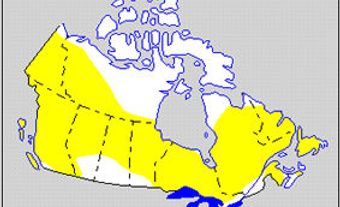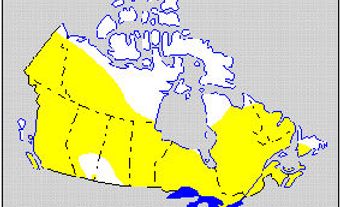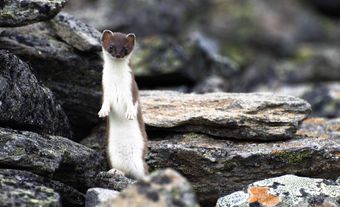Wolverine
Wolverine, or carcajou (Gulo gulo), largest of the weasels, resembles a powerful, miniature bear. Adult males weigh about 14 kg; females, 9 kg. Fur is usually dark brown; head and tail are slightly lighter than the body. Usually, 2 tan stripes run from the neck along the sides, meeting at the tail.
Distribution and Habitat
The wolverine is a rare animal in Canada. They are now absent from the southeast and the prairies, rare in the east, and sparse in western and northern regions. They are known for travelling long distances (up to 112 km in 24 hours). In Alaska adult males have been found to have territories of up to 770 km2; females, 355 km2.
Reproduction and Development
Wolverines are normally solitary except when breeding or raising young. Mating occurs May-July; implantation is delayed and the 2-5 young are born Feb-Mar.
Diet
The wolverine's supposed strength, ferocity, and ability to raid traplines and cabins have become legendary. The powerful teeth and jaws are adapted for crushing frozen meat. Wolverines are better scavengers than hunters. In winter they eat mainly carrion; in summer, berries and vegetation as well. Wolverines do best in sparsely populated areas with abundant ungulate populations.
Relationship with Humans
Wolverine fur is preferred for trimming parka hoods because outer hairs shed frost without wetting. BC provides about one-third of all pelts (300-500) taken in Canada annually. Exploitation by humans is the most important external factor influencing abundance and distribution.

 Share on Facebook
Share on Facebook Share on X
Share on X Share by Email
Share by Email Share on Google Classroom
Share on Google Classroom






